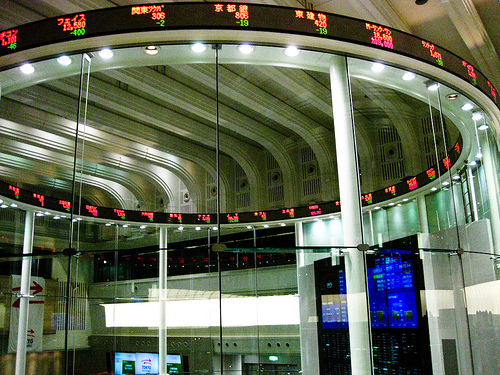At the most basic level, stock prices are related to demand. When many people want to buy stock in a certain company, the stock price goes up, and when a lot of people are trying to get rid of a stock, its price goes down. But there are several other factors that go into a stock’s price.
If investors think a certain stock will do well, they will buy it and its price will go up; the reverse is also true. Stocks don’t exist in a vacuum, so their environment (both in general and specifically) affects their price. How is the company that owns the stock doing? Has it released positive earnings reports or a new product that shows promise? Investors also examine the social and economic climate in general – interest rates, political interest in certain businesses, and so on. Lastly, there’s the market itself to consider: during a bull market, everyone is buying stock, so stock prices in general tend to go up.
The stock market is tricky because it relies so much on anticipating things before they actually happen. A stock’s price will go up if it is popular, but investors may also buy that stock because they think it will become popular in the future. If enough people have this hunch, investing can become a self-fulfilling prophecy.
